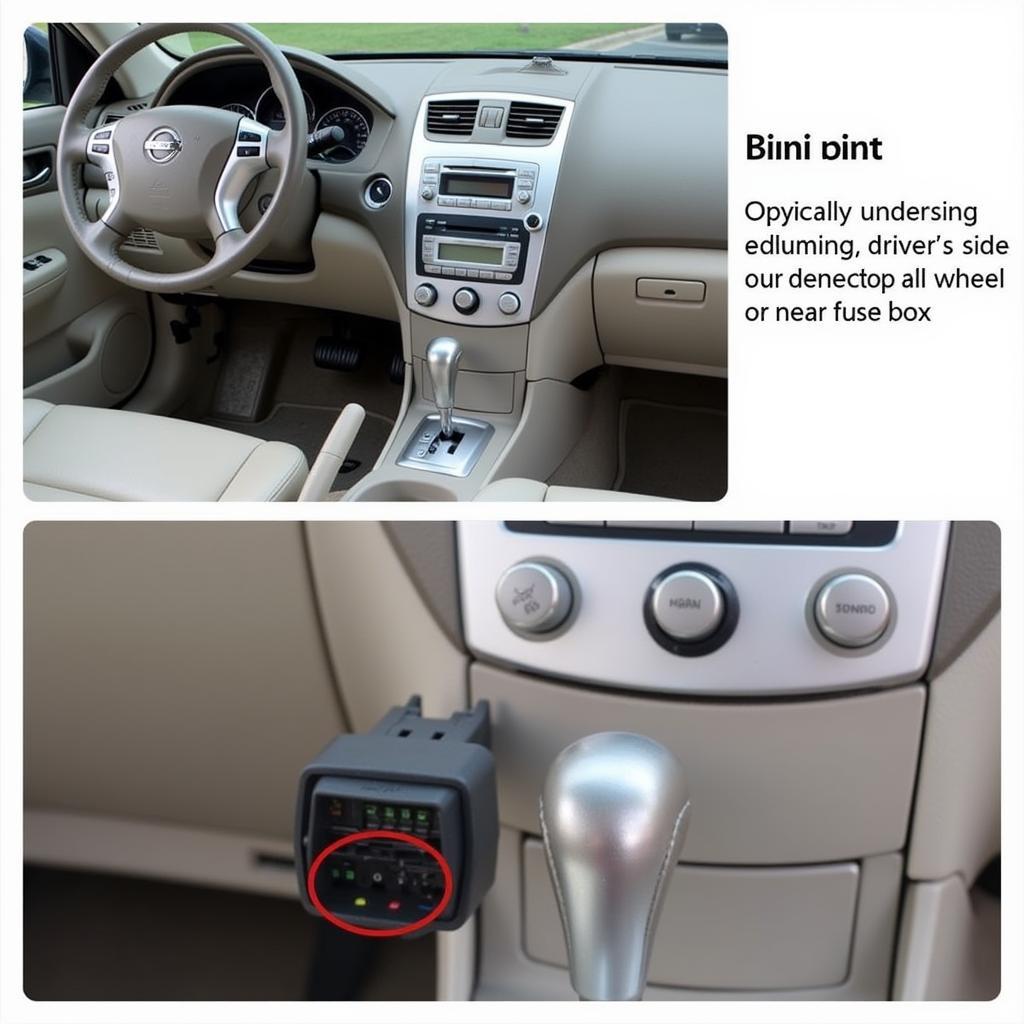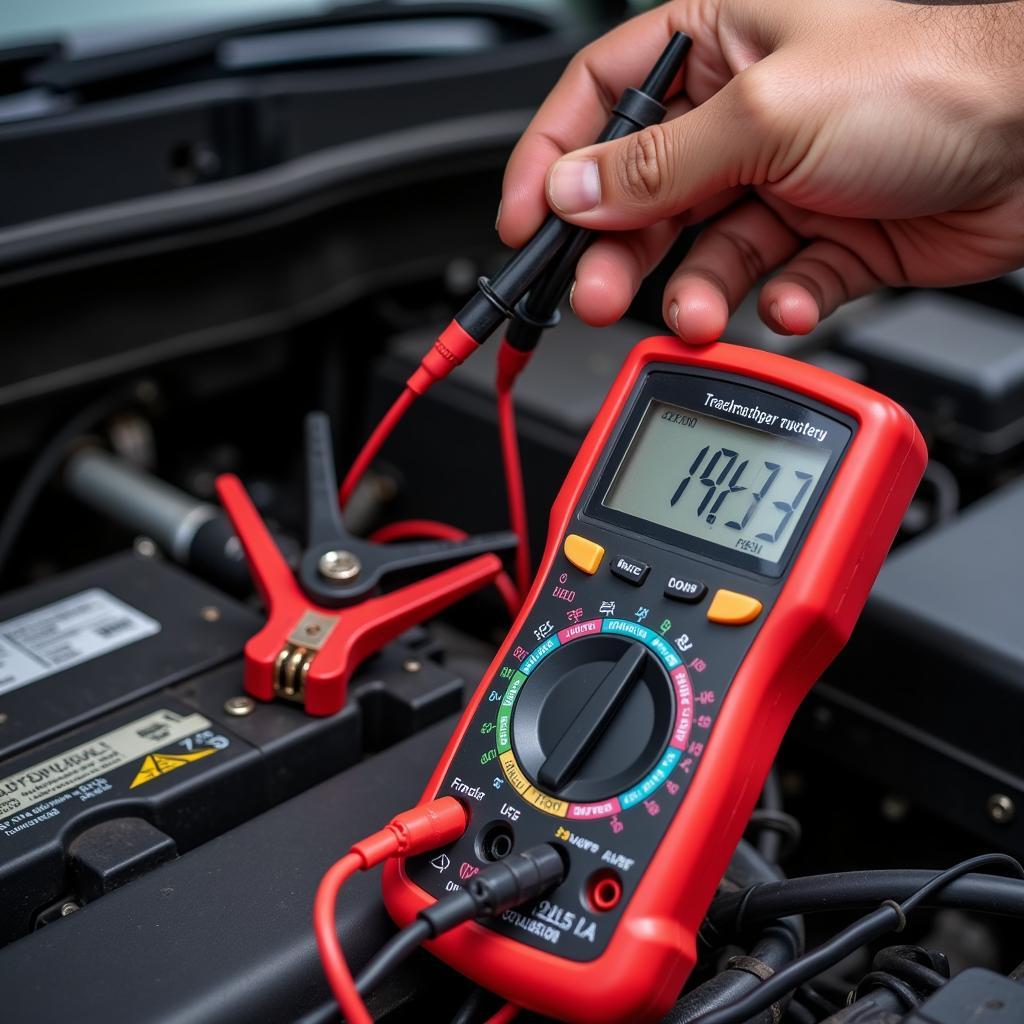Porsche vehicles are renowned for their precision engineering and exhilarating performance. However, even these automotive masterpieces require occasional maintenance and repair. When issues arise, having the right diagnostic tools can mean the difference between a quick fix and a costly headache. This comprehensive guide will delve into the world of Porsche Diagnostic Tools, equipping you with the knowledge to confidently diagnose and resolve any problems that come your way.
Why are Porsche Diagnostic Tools Essential?
Modern Porsches are complex machines with intricate electronic systems controlling everything from engine performance to comfort features. Gone are the days of simple mechanical repairs; today’s automotive technicians need advanced tools to communicate with these sophisticated systems effectively.
Porsche diagnostic tools provide a direct line of communication with your vehicle’s onboard computer, allowing you to:
- Retrieve Diagnostic Trouble Codes (DTCs): These codes act as virtual breadcrumbs, pointing to specific areas where faults are detected.
- Read and Clear Fault Codes: Accessing and clearing DTCs is crucial for identifying the root cause of problems and resetting warning lights.
- View Live Data Streams: Monitoring real-time sensor data provides invaluable insights into your Porsche’s performance, helping you pinpoint issues with precision.
- Perform Actuator Tests: Activating various components like fuel injectors, solenoids, or valves allows for isolated testing and confirms proper operation.
- Access Coding and Programming Functions: For advanced users, certain tools offer coding and programming capabilities, enabling customizations and software updates.
[image-1|porsche-diagnostic-tool-in-use|Porsche Diagnostic Tool in Use|A mechanic using a professional Porsche diagnostic tool plugged into a car’s OBD-II port to diagnose a problem. The tool’s screen displays real-time data.]
Types of Porsche Diagnostic Tools
A wide range of diagnostic tools cater to different needs and budgets, from basic code readers to comprehensive professional scanners.
1. Generic OBD-II Scanners
These entry-level tools are widely available and can read and clear basic engine-related DTCs. While affordable, their functionality for Porsche-specific systems is limited.
2. Porsche-Specific Code Readers
A step up from generic scanners, these tools offer more in-depth coverage of Porsche-specific systems, including ABS, airbags, and transmission. They provide a cost-effective option for DIY enthusiasts and independent workshops.
3. Professional Porsche Diagnostic Scanners
For comprehensive diagnostics and advanced functionalities, professional-grade scanners are essential. These tools offer complete system coverage, bi-directional communication, coding capabilities, and access to technical service bulletins (TSBs).
[image-2|different-types-of-porsche-diagnostic-tools|Different Types of Porsche Diagnostic Tools|A collection of various Porsche diagnostic tools, including generic OBD-II scanners, Porsche-specific code readers, and professional-grade diagnostic scanners, showcasing their diversity and applications.]
Choosing the Right Diagnostic Tool for Your Needs
Selecting the right diagnostic tool depends on your budget, technical expertise, and intended use.
DIY enthusiasts: A Porsche-specific code reader can be a valuable investment for diagnosing and resolving common issues.
Independent workshops: Investing in a professional-grade scanner provides the capability to handle a wider range of repairs and attract more Porsche owners.
Porsche dealerships: Utilizing the latest factory-level diagnostic equipment is crucial for maintaining the highest level of service and expertise.
Maximizing Your Diagnostic Tool Investment
Investing in a quality diagnostic tool is only the first step; knowing how to use it effectively is equally important.
- Familiarize Yourself with the Tool: Spend time reading the user manual and exploring the tool’s features and capabilities.
- Keep Your Tool Updated: Regular software updates ensure compatibility with the latest Porsche models and provide access to new features and bug fixes.
- Utilize Online Resources: Numerous online forums, communities, and video tutorials offer valuable insights and troubleshooting tips.
[image-3|mechanic-using-porsche-diagnostic-software-on-laptop|Mechanic using Porsche Diagnostic Software on Laptop|A mechanic using a laptop with specialized Porsche diagnostic software to analyze vehicle data and troubleshoot problems.]
Expert Insights
“Having the right diagnostic tool is like having X-ray vision for your Porsche,” says Michael, a seasoned Porsche technician with over 20 years of experience. “It allows you to see beyond the surface and pinpoint issues with accuracy, saving time and money in the long run.”
He further emphasizes, “Don’t underestimate the importance of continuous learning. The automotive industry is constantly evolving, and staying updated with the latest diagnostic techniques and tools is crucial for providing top-notch service.”
Conclusion
Porsche diagnostic tools are indispensable for anyone looking to keep their Porsche performing at its best. Whether you’re a DIY enthusiast, an independent mechanic, or a Porsche dealership, having the right tool at your disposal empowers you to diagnose and resolve problems efficiently and effectively. By investing in quality equipment and staying abreast of the latest advancements, you can ensure your Porsche continues to deliver the exhilarating driving experience it was designed for.
Need expert assistance with your Porsche diagnostics? Contact ScanToolUS at +1 (641) 206-8880 or visit our office located at 1615 S Laramie Ave, Cicero, IL 60804, USA.




Pingback: What Is the Best Diagnostic Tool for Porsche? - Car Scan Tool